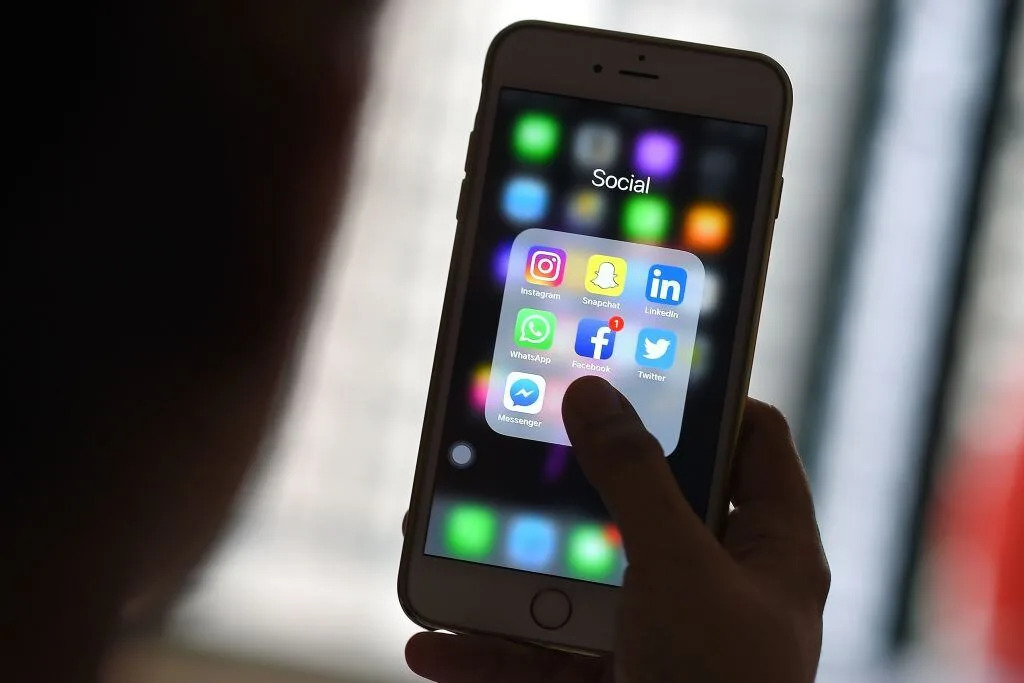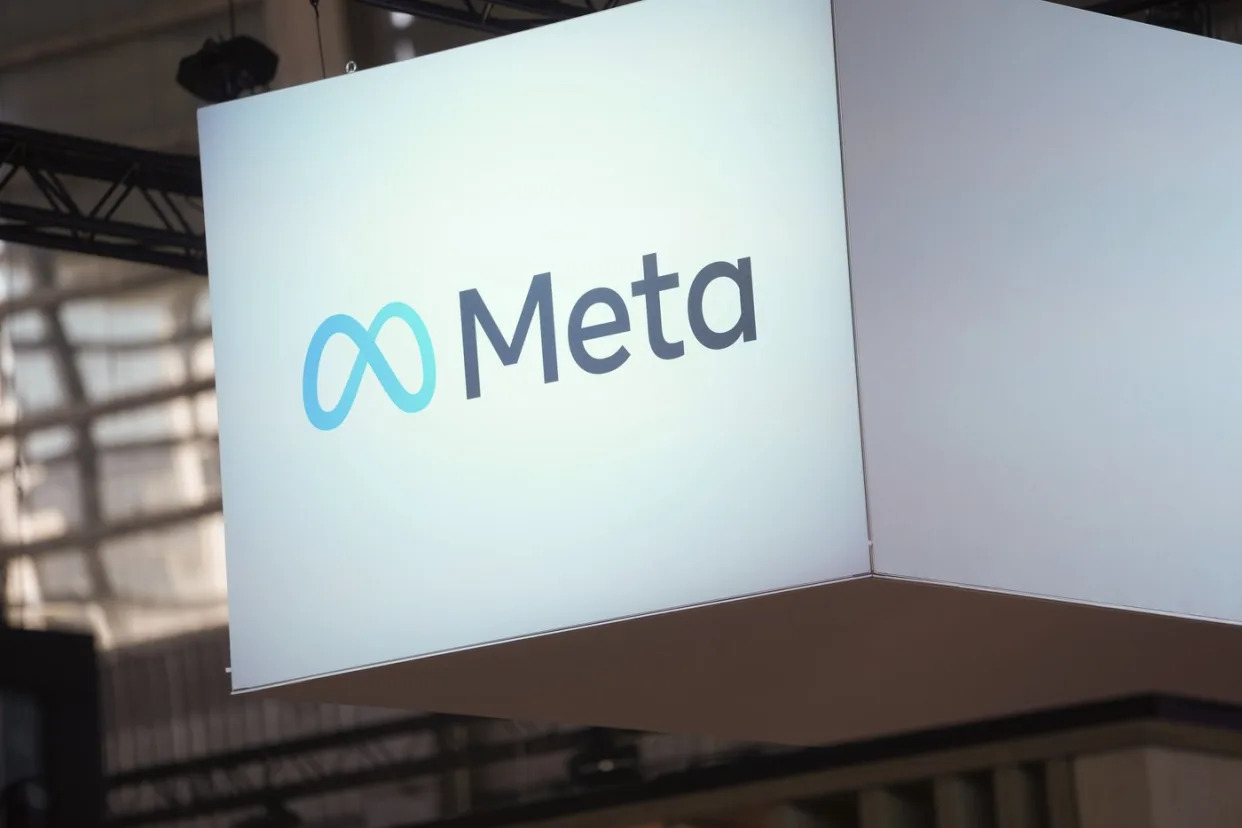CBC
Wed, May 29, 2024

Beginning this fall, Ontario is implementing new and stricter measures to prevent students from using smartphones during school hours. (Manan Vatsyayana/AFP/Getty Images - image credit)
Five more Ontario school boards and two private schools have joined an ongoing lawsuit against some of the world's largest social media companies that argues their products have negatively rewired the way children think, behave and learn.
"The addictive properties of the products designed by social media giants have compromised all students' ability to learn, disrupted classrooms and created a student population that suffers from increasing mental health harms," said a news release issued Wednesday by Schools for Social Media Change, an umbrella group of the plaintiffs in the suit.
"As a result, social media companies have forced school boards to divert significant resources including personnel, hours, funds, and attention to combat the growing crisis caused by their products," it continued.
The suit was initially filed in late March by the public district school boards of Toronto, Peel and Ottawa-Carleton, along with Toronto's Catholic counterpart.
They are now joined by:
Dufferin-Peel Catholic District School Board.
York Catholic District School Board.
Trillium Lakeland District School Board.
Ottawa Catholic District School Board.
District School Board of Niagara.
Private schools Holy Name of Mary College School and Eitz Chaim.
The suit seeks roughly $4.5 billion in total damages from Meta Platforms Inc., Snap Inc. and ByteDance Ltd., which operate the platforms Facebook and Instagram, Snapchat and TikTok respectively.
"The mix of public and Catholic school boards, and private schools in both urban and rural regions of Ontario demonstrate this is a universal issue that affects those from diverse cultural, religious and socio-economic backgrounds," the news release said.
The allegations have yet to be proven in court, and there is no set date for when they will be heard.
In a statement, a spokesperson for Meta said the company has parents' "interests at heart in the work we're doing to provide teens with safe, supportive experiences online." The spokesperson said Meta has introduced more than 30 tools to give parents control over their teens' use of Instagram and protect users from various online harms.
Meanwhile, Snap said it intends to defend the claims in court and that Snapchat was "intentionally designed to be different from traditional social media."
"Snapchat opens directly to a camera — rather than a feed of content — and has no traditional public likes or comments. While we will always have more work to do, we feel good about the role Snapchat plays in helping close friends feel connected, happy and prepared as they face the many challenges of adolescence," the company said in an email.
Meanwhile, a representative for TikTok said the app has "industry-leading safeguards," including parental controls and an automatic 60-minute screen time limit for users under 18.
"Our team of safety professionals continually evaluate emerging practices and insights to support teens' well-being and will continue working to keep our community safe," the spokesperson said.
Ontario Premier Doug Ford publicly criticized the suit after it was filed, calling it "nonsense" and questioning the legal fees the boards could end up paying in a protracted court battle against some of the richest companies in the world.
Neinstein LLP, the Toronto-based firm representing the school boards and private schools, said in March they will not be responsible for any costs related to the suit unless a successful outcome is reached.
Similar lawsuits in U.S.
Hundreds of school boards in the United States, along with some states, have launched similar lawsuits against social media companies.
Last fall, over 30 states accused Meta Platforms Inc. of harming young people's mental health and contributing to the youth mental health crisis by knowingly designing features on Instagram and Facebook that cause children to be addicted to its platforms.
In April, Ontario's Ministry of Education announced it would introduce new measures to crack down on cellphone use by students in the province's schools.
Starting in September, students in kindergarten to Grade 6 will be required to keep phones on silent and "out of sight" for the entire school day, unless they are granted permission to use it, the ministry said.
Similarly, students in grades 7 to 12, will not be permitted to use their cellphones during class time without permission.
"If they do not comply, they will be asked to surrender their phones or they could be sent to the office," Education Minister Stephen Lecce said at the time.
The new policies were announced after a previous 2019 attempt to "ban" smartphones in Ontario schools floundered, with many boards saying it was unenforceable.
Five Ontario school boards, two schools join legal fight against social media giants
Jordan Omstead
Wed, May 29, 2024 at 12:04 p.m. MDT·4 min read

TORONTO — Five more Ontario school boards and two private schools have joined the multibillion-dollar legal fight against social media giants Facebook, Instagram, TikTok and Snapchat, accusing their parent companies of leaving educators to manage the fallout from their allegedly addictive products.
They join some of Ontario's largest school boards who filed suits in March alleging the platforms are negligently designed for compulsive use and have rewired the way children think, behave and learn.
"This increasingly hinders students’ ability to absorb lessons, think critically and thrive in our learning spaces," said Kelly Pisek, the director of education at District School Board of Niagara, one of the new plaintiffs.
"As a result, school staff are required to spend more time working to meet the needs of students who face significant attention, focus and mental health concerns."
The province, however, doubled down on its criticism of the legal action, with the education minister accusing school boards of choosing litigation over co-operation with the platforms.
Filing their own lawsuits this week were the Catholic boards in Ottawa, Dufferin-Peel and York, along with Trillium Lakeland District School Board and District School Board of Niagara. Holy Name of Mary College School, a private Catholic girl's school in Mississauga, Ont., and a private Jewish day school, Eitz Chaim, round out the list of the new plaintiffs.
Together, the seven new schools and school boards are seeking $2.57 billion in damages for disruption to student learning and the education system, on top of the more than $4 billion already sought by the four school boards who filed earlier this year.
In March, Toronto's public and Catholic school boards, the Ottawa-Carleton District School Board and the Peel District School Board filed their own cases with Ontario's Superior Court of Justice.
“The addition of these school boards and schools to the ongoing litigation against technology companies demonstrates the widespread disruption to the education system," said Duncan Embury, a lawyer at the Toronto firm Neinstein, which is heading up the litigation.
The allegations in the lawsuits have not been proven in court.
A spokesperson for TikTok has said its team of "safety professionals" continually evaluate practices to support teens' well-being, while Snapchat has said it is happy with the role it plays helping friends stay connected as they face the challenges of adolescence.
A spokesperson for Meta, the parent company for Facebook and Instagram, said it developed more than 30 tools to support teens and their families, including tools that allow parents to decide when, and for how long, their teens use Instagram.
"These are complex issues, but we will continue working with experts and listening to parents to develop new tools, features and policies that are effective and meet the needs of teens and their families," the statement read.
Hundreds of school boards in the United States, along with some states, have launched similar lawsuits against social media companies.
The Ontario suits make a slew of allegations about how negligently designed social media platforms have upturned the education system.
Among them, they say more staff and administrator time is being spent on addressing compulsive student social media use, more money is going into the heightened need for digital literacy and harm prevention, and more resources are being spent on handling issues such as cyberbullying and online sexual harassment.
Students also struggle to spot misinformation, the suits allege, pushing teachers to spend time and resources to help vet what they see on their social media feeds and prevent them from adopting harmful ideologies they are exposed to on the platforms.
The school boards say they will not incur costs for the lawsuits unless they are successful.
Ontario Premier Doug Ford was critical of the initial lawsuits, saying in March school boards should put resources into students rather than a legal fight over "this other nonsense."
Education Minister Stephen Lecce backed up those comments Wednesday. He said the government was choosing to "collaborate with these enterprises."
He cited the government's plan to ban cellphone use during class time and block access to social media platforms on school networks and devices, and suggested school boards should have taken those steps themselves, "years ago."
"Instead of talking about it and litigating about, we opt to act decisively with a comprehensive plan," he said.
Teachers' unions have expressed skepticism about the province's move and said staff are hesitant to take phones away in case devices are lost, damaged or stolen.
This report by The Canadian Press was first published May 29, 2024.
Jordan Omstead, The Canadian Press
No comments:
Post a Comment